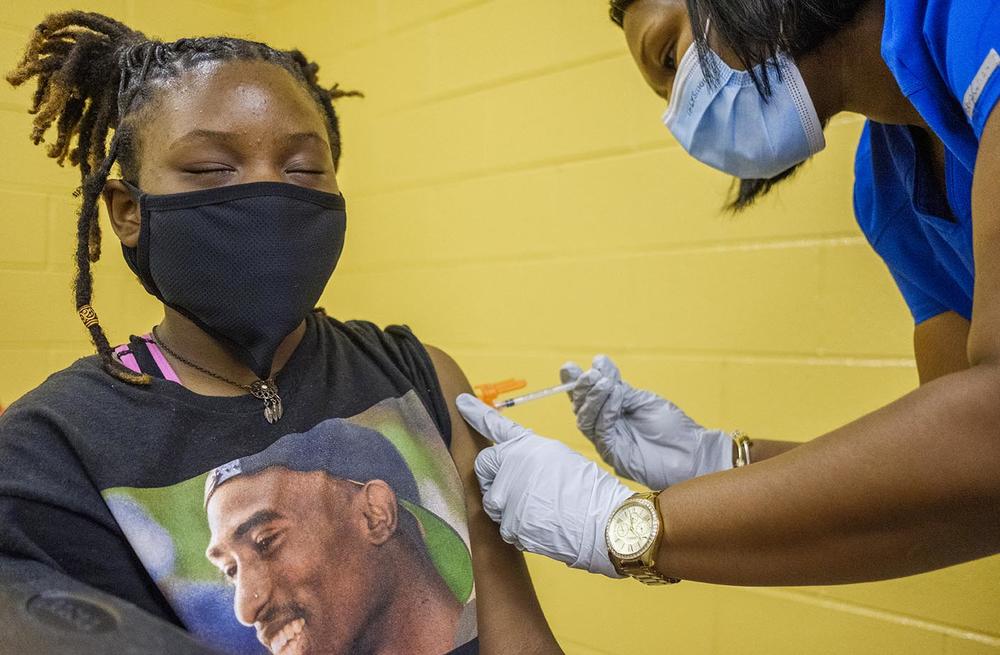
Caption
Bibb County middle school student Sade Veal gets her first dose of the Pfizer COVID vaccine at a back to school event sponsored by Bibb County Schools in 2021.
Credit: Grant Blankenship
|Updated: January 26, 2022 3:16 PM

Bibb County middle school student Sade Veal gets her first dose of the Pfizer COVID vaccine at a back to school event sponsored by Bibb County Schools in 2021.
A bill filed this week in the Georgia Senate would end the longstanding schedule of mandatory vaccinations for school-children — although sponsors say the bill is aimed at preventing government overreach when it comes to COVID-19 vaccinations.
Senate Bill 345 has 17 Republican sponsors with Jeff Mullis of Chickamauga as the head sponsor. It defines and takes in a variety of institutions in the public sphere, including explicitly schools, and says no proof of vaccination should be required to access those places.
“The authors told me it was a COVID passport bill, and I glanced over it and that was the way I interpreted it,” said co-sponsor Sen. Larry Walker III of Bonaire.
The bill, however, makes no mention of COVID-19, the coronavirus or any disease at all. That would extend the prohibition more broadly to any vaccine.
“I don't think that's the intent of the legislation,” Walker said. “I encourage vaccinations. I've gotten both my COVID vaccines and my booster, and I encourage the public to get vaccinated. But I'm not for government mandates.”
For years, Georgia has had a schedule of mandatory vaccines for everything from polio to chicken pox to hepatitis A and B before allowing children to attend school.
“I don't know that I've ever known us as a country to require proof of, say, diphtheria vaccination or any other kind of vaccination to be able to get public services or enter a public building,” said Walker, a father of three.
At least four doses of the vaccine for diphtheria, tetanus and whooping cough are required by age 4 in Georgia.
Walker said he imagines the bill’s language will be narrowed to focus on the COVID vaccines as it moves through the General Assembly.
“It might take a minute for them to think of the implications of a bill of that style if they are thinking carefully,” said Democrat Georgia House member Rebecca Mitchell of Gwinnett County.
Mitchell is a Ph.D.-level epidemiologist and a mother of four. She said SB345 is an election-year signal to likely Republican primary voters who are still mad at mainstream institutions — and even that signaling can do harm.
“The community care value of vaccines is being eroded,” she said. “Your primary voters fundamentally want to be happy and healthy and productive. “
And, she said, given the record of childhood vaccinations in supporting community health, pushing mistrust in vaccines for political purposes would ultimately make for a less healthy electorate.